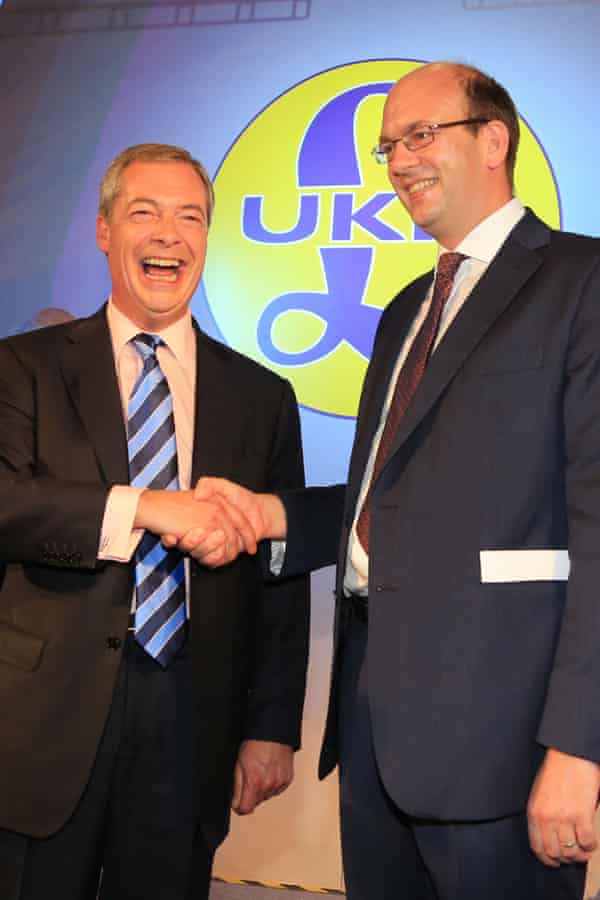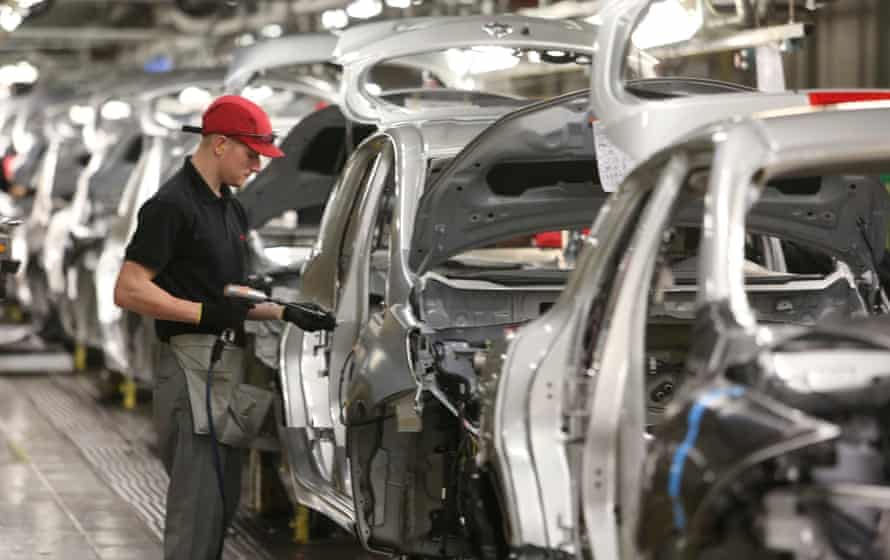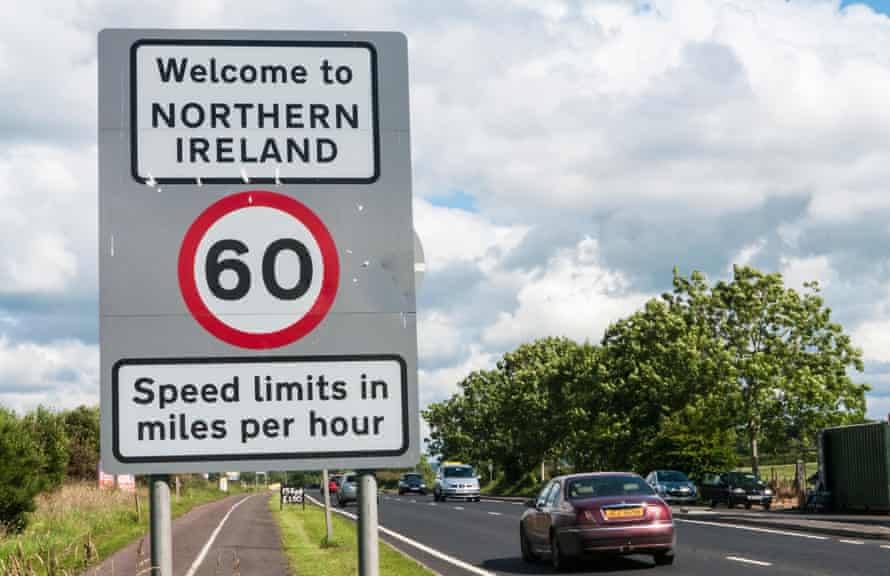What Would Happen if the Brexit Happen Again
B ritain's human relationship with Europe is low down on the list of concerns for most voters in the coming election, but the subject of the "Brexit" – Britain's secession from the European Union – will come to dominate our political lives should the Conservatives discover themselves in some kind of power later on seven May. David Cameron has promised a 2017 referendum on our place in the EU, a referendum our survey suggests is favoured past the bulk of the population. The upshot of any referendum looks less certain, with those wishing to leave Europe just outnumbering those likely to vote for the status quo, but there are still many undecided.
The arguments on either side are clear. If yous're a Eurosceptic, the impositions of European Union bureaucracy are daily infuriations, with Britain supposedly ceding control to Brussels of immigration policy, of its legal system, of its famously curved cucumbers. U.k. contributes a small fortune to the European union budget each twelvemonth (somewhere betwixt £8bn and £20bn, depending on whom yous believe) and that's later on the difficult-won mutual agricultural policy rebate secured by Margaret Thatcher in 1984 (when Great britain was the second poorest of the EEC members).
Anti-European feeling, stoked past an aggressively Eurosceptic printing (or "Europhobic", equally Peter Mandelson called them), sees British secession from the EU every bit opening up new vistas of global economic co-performance and integration, while slamming the door on the legions of impecunious eastern European migrants coming to scrounge off the welfare country.
Marking Reckless, the Ukip MP who defected from the Tories because of what he saw equally a soft line on Europe, told the states: "Many of those who are at present saying that Brexit would be a terrible thing for the state were the same people who were arguing very strongly that we should bring together the euro. The obvious failure of the euro combined with the remarkable growth of emerging markets exterior Europe and the relative success of the United states of america when compared with Europe – all of these are major factors which make it very difficult for people to argue to stay in the EU, and volition make people feel that it's much better for them economically to leave."

1 of the main arguments employed past those in favour of remaining in the Eu is just how difficult information technology would testify to leave. We are deeply integrated with our European allies – economically, militarily and culturally. Information technology'due south probable that Brexit (and what an ugly neologism information technology is) would lead to plummeting stock markets and an economic recession, with losses to Gdp calculated by the Eye for Economic Performance at upward to 9.v% – worse than the 2008 financial crunch. Parliament's articulation committee on national security strategy has warned that leaving the EU would risk "crucial connections being missed" in the war on terror. Brexit would mean visas for visits to French republic, annual driving tests for the British inhabitants of the Costa del Sol (if they're allowed to stay at all), and could well reignite calls for Scottish independence.
Denis MacShane, Blair'southward minister for Europe before a catamenia of enforced seclusion at her majesty'south pleasance post-obit the expenses scandal, has found himself suddenly in demand as an expert on Brexit and the Eu, having recently published a trenchant and intelligent book on the subject, Brexit – How Britain Will Go out Europe. "The Italians, Germans, French, Americans, Canadians, they're all admittedly terrified by the prospect of the referendum, let alone Britain actually leaving the European union," he says. "They can't say annihilation on the record, just they all know that two years of Brexit negotiations will be hell. It will be monumental and destabilising and will dominate our relations with all our trading partners. It'southward the start time in my lifetime that a major nation has offered its citizens a referendum on membership of a major international organisation. It's seen internationally as an act of flippant irresponsibility. A common cold-blooded appeasement of Ukip that is genuinely shocking other countries."
While we don't know yet the terms under which any secession from the EU would be negotiated, here we set out some of the key potential ramifications of Brexit, cartoon on the expertise of a broad range of figures from the worlds of politics and economics.
one. Business concern
If information technology really is the economy, stupid, then it will be the winner of the economic arguments that prevails in any potential Brexit negotiation. Leaving aside for a moment implications of incertitude in the stock market in the run-up to a referendum, nosotros await at the identify of British concern within, and without, the European Union.
James Ind of Human being GLG, one of the City's leading nugget managers, told united states of america that most British businesses recognise that information technology is not to their benefit to leave the EU. "There are very few businesses who would see it in their interests to push for European exit," he says. "There are some that might feel they'd be better off negotiating with non-European nations, particularly emerging markets, as a Great britain entity. For case in Republic of india, where the Eu has put through some bad deals, all bundled together, and perhaps nosotros could put together some better ones on our own, but those are very much the minority."

For the Eurosceptics, Brexit would free our businesses, specially our financial services, to operate on a global phase. Robert Oulds, managing director of the Bruges Grouping, a thinktank that advocates cut ties with Europe, has researched extensively the bear on on business of a post-Brexit world: "If we left, we'd be outside the reach of the fiscal transactions tax [proposed by the European union and due to be introduced in January 2016], which is worrying many in the Metropolis and volition certainly drive fiscal business outside of the European union. Nosotros'd too have the ability to get out of Eu rules like the cap on bonuses in the Urban center."
One of the areas of focus for the coalition government has been a renewed concentration on industry and manufacturing in the UK, a recognition that the economy had become besides reliant on the service sector. Denis MacShane sees Brexit as a threat to this old industry renaissance. "If you look at our motor automobile industry, it's entirely strange-owned, a lot of it Asian coin. Now they're investing here because they have completely unfettered admission to the Eu through us. If nosotros left, why wouldn't they choose to base their big investment projects in another EU country? There are enough of places with labour that is just equally skilled but much cheaper. Romania, Bulgaria – they could selection upward all the Japanese and Indian motor car investment."
2. Integration
In a contempo speech in support of Ed Miliband, Tony Blair focused on the dangers of leaving the EU. He said that secession would leave united states "diminished in the earth, do significant harm to our economic system and, less obviously but just equally of import to our time to come, would go against the very qualities and ambitions that marking usa out still every bit a great global nation". This is the central line of those seeking an "in" vote (or wishing to avoid a referendum birthday): that Brexit would not only leave usa poorer financially (something that, at least in the brusque term, even Eurosceptics concede), but it would also mark a kind of moral declining, a sign that nosotros were in retreat from a aureate age of British internationalisation.
Brexit is often presented as a Catch-22, where we are and so enmeshed in the EU that any separation must produce intolerable pain, at least in the short term. John Springford, senior research fellow at the Centre for European Reform who has carried out a lengthy study of the economic costs of Brexit, says: "The trade-off is an uncomfortable one for Great britain if it votes to leave. Information technology'south leave the EU and get your sovereignty back, regulate your economy as yous encounter fit, merely lose market access and damage your economy. Or you leave the EU, sign up to the EEA [European economic area] or try to have a bespoke trade understanding with the European union similar the Swiss one. But that would mean you lot'd take to sign upwardly to most of the regulations – y'all'd have no control over them – and y'all'd accept to agree to the gratis movement of labour. It seemed to us that both of these alternatives are far worse than EU membership."
Mark Reckless is more optimistic about the prospects for mail service-Brexit Uk: "Nosotros're paying £20bn into the Eu budget each year. Because of our membership of the European union, we're non able to trade freely with the rest of the world, and the EU has a poor record of opening their markets to our exporters, particularly loftier-value-added business services. The prospect of existence able to sell British agronomical and nutrient markets to the world would get out the British economic system in a much ameliorate condition postal service-Brexit than it is at present."

iii. Financial services
Every few months, in that location seems to be a weep from sure sectors of the Urban center of London that government interference (usually in the course of higher taxes or caps on bonuses) or EU regulation (the dreaded financial transactions revenue enhancement) will drive our financial services into the arms of Switzerland or Singapore. Some Eurosceptics meet Brexit every bit a dandy opportunity to remodel Britain'due south economy, increasing our reliance on financial services and using Switzerland equally a model for hereafter success freed from the shackles of the European union.
"Switzerland isn't suffering economically at the moment because information technology's not part of the European union," Robert Oulds says. "It'due south able to merchandise financial services and bolt with whomever it wants. For our fiscal services, if nosotros left the EU and remained in the single market, the only deviation would be that we would not be nether EU regulators such equally the European Banking Authority. There's a whole host of EU agencies that are incredibly powerful and have the power to shut downwardly one of our financial institutions pretty much at whim. This is a worry to some people in the City."
Denis MacShane notes that "Dubai and Singapore are making huge bids to get financial services to move in that location, offering huge taxation-gratis incentives, but of course nobody actually wants to live in these countries". As for Switzerland, information technology'southward a mistake to suggest that it is trading with the Eu without signing up to EU regulation, he says. "The Swiss are hanging on by their fingernails. I was over in Berne talking to the Swiss Bankers Association about Brexit a few weeks ago and they're tearing their fiddling hairs out considering they've got a very tricky renegotiation with the EU coming up. They had this crazy vote to cap immigrants concluding Feb. And the EU said, 'No manner! If you enforce that, you're out of everything, none of the existing agreements – research, merchandise, business – can stand up.' The Swiss are going to have to offer another vote [on immigration] in 2017, would you believe it, and businesses and the government will and so come steaming out of the traps to ensure that the relationship with the EU is maintained. I think this is what would happen if United kingdom left the EU. At that place'd be the mother and father of all political crises in United kingdom. Cameron would just walk away and mitt the problem over to someone else and information technology would be their chore to get grovelling to Brussels to let us dorsum in."
James Ind agrees that using Switzerland or Dubai every bit a epitome for our financial futurity is misguided. "We shouldn't use as a model a much smaller country that provides the sort of services that larger, regulated economies can't," he says. "The British financial services industry is not about offshore individual banking, it'due south well-nigh world-class asset direction, insurance, reinsurance, banking, retail banking, commercial banking – these kinds of unsexy parts of the financial services industry which Uk does very well – I can't see how any of these are better off exterior of Europe.

"The financial services sector is likely to notice itself in an uncomfortable position outside of Europe. Europe is the biggest consumer of the UK's $60bn of financial service exports. And even beyond Europe its access to markets would have to exist renegotiated if it no longer brutal nether the EU'southward trade agreements and regulatory framework. The industry might struggle to regain all its relationships from outside the tent. Equally Britain's largest industry in terms of contribution to GDP, this is likely to have a material impact on the economic system."
4. Immigration
Command of Eu immigration has been one of the nearly headline-grabbing arguments in the Brexit contend then far, with Ukip and the Murdoch printing pushing for the UK to adopt an Australian-manner points system where immigrants are graded on their potential employ to the economy before beingness granted visas.
John Springford believes that i of the benefits of a plebiscite debate would be that it would allow people to empathize the myriad benefits conferred by EU membership, rather than the knee-jerk reactions encouraged past sensationalised newspaper reporting of the subject. "I call up information technology might be cathartic to have a referendum, with people understanding a bit more most what the trade-offs are. So maybe they don't similar immigration and they don't like rules being imposed from Brussels, but when you speak to people, they don't really sympathize what the benefits of these are. The campaign may draw them out and forcefulness them to think almost that."
The facts most the effects of migration on the UK economic system, wages and employment are frequently distorted, difficult to understand or poorly explained. Government research from 2014 suggests that immigration actually has very limited touch on on levels of employment, while a wide-ranging report by the Oxford University-based Migration Observatory showed that a ane% ascent in immigration depressed wages by only 0.3%. Looked at over a longer timescale, immigration really boosted wages. The research did point out, nevertheless, that the benefits were not spread across all income groups and that those at the lesser tended to suffer. "The greatest wage effects are found for low-waged workers. Each i% increase in the share of migrants in the UK-born working-historic period population leads to a 0.half-dozen% decline in the wages of the 5% lowest-paid workers and to an increase in the wages of college paid workers." Crucially, migrants are far less likely to merits benefits than native Britons (although EU migrants are marginally more likely to merits than their non-EU counterparts).
v. Freedom of movement

There are ix countries within the European union that take British expat communities of 20,000 or more, all of whom would be dramatically affected by Brexit. More than one million Brits alive in Espana lonely. British secession from the Eu would bring with information technology any number of consequences, some of them foreseen, others less and so. For instance, we'd need to apply for visas in order to take our holidays in France, says Denis MacShane, make full out endless forms for any European business we wished to do. "In Espana, every not-Eu resident has to pass a driving examination and file five years of tax returns." He adds that another Scottish referendum could get a possibility, with Nicola Sturgeon already having fabricated clear her position on Europe – that Scotland should remain an EU member whatsoever United kingdom of great britain and northern ireland decides to do. More recently, Fabian Picardo, chief minister of Gibraltar, has said that he would want a dissever referendum on EU membership if Britain sought to leave.
Then there's the problem of the edge betwixt northern and southern Ireland. Relatively fluid and even continental under the current arrangement, it would become a major international frontier, manned by border patrols and customs guards. The taoiseach is already setting up a special unit of measurement to investigate the situation. Currently, Great britain exports more to Ireland than to Prc, India and Brazil combined, trade worth over €1bn a week. "We cannot beget the potential deep doubt that would inevitably result from a fundamental modify in the EU-United kingdom of great britain and northern ireland relationship, let alone the concrete difficulties which could arise," says the Irish European minister, Dara White potato.

If the Conservatives win power in the coming ballot, we should prepare ourselves for two years of claim and counter-merits on Europe, clearing and Britain'south place in the earth. We shouldn't assume that, just because everyone from Richard Branson to David Cameron himself wants us to stay in the EU (and make no fault about information technology, Cameron offered the referendum every bit a sop to his grassroots and a defence against Ukip; he doesn't want Britain to secede), the vote will be clear cut or predictable. We have a Eurosceptic press that will be fighting for an "out" vote and the way Nigel Farage's message has chimed with voters (at least in local elections) highlights the fact that the British accept never really embraced the k European project. Denis MacShane says that "the working assumption has to exist that nosotros could easily vote to leave Europe. No major referendum anywhere on Europe in the final 15 years has voted in favour, and so why should we be unlike?"
The pro-Europeans accept to promise that the British will realise that nosotros have too much to lose past leaving the EU. We would feel the common cold economic wind of a post-Brexit world and nosotros'd draw back from the border. As James Ind puts it: "The arguments when you wait at them objectively for staying in Europe may not exist as emotionally appealing, but they do appeal to self-interest. And I think if yous look at the Scottish plebiscite every bit a playbook for that, you tin can get a lot of headlines about why people should leave the wedlock, just when information technology really comes downwardly to cold hard choices, people vote with their wallets."
- This article was amended on 19 April 2015. Denis MacShane said no major referendum on Europe in the last 15 years had voted in favour … not 50 years equally we had information technology. As well, when talking most driving tests for non-EU residents in Kingdom of spain, he said these had to be washed when taking up residence there, non every twelvemonth, as reported. These have been corrected.
Alex Preston's third novel, In Beloved and War is published by Faber
Source: https://www.theguardian.com/politics/2015/apr/19/what-would-happen-if-britain-left-the-eu-consequences-of-exit
0 Response to "What Would Happen if the Brexit Happen Again"
Post a Comment